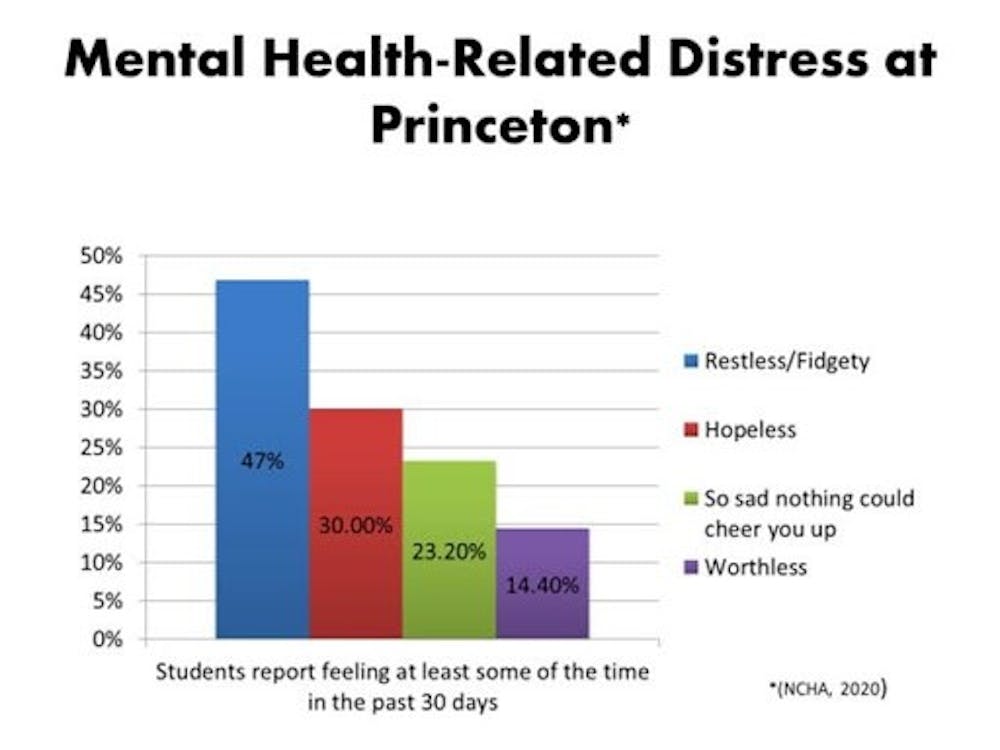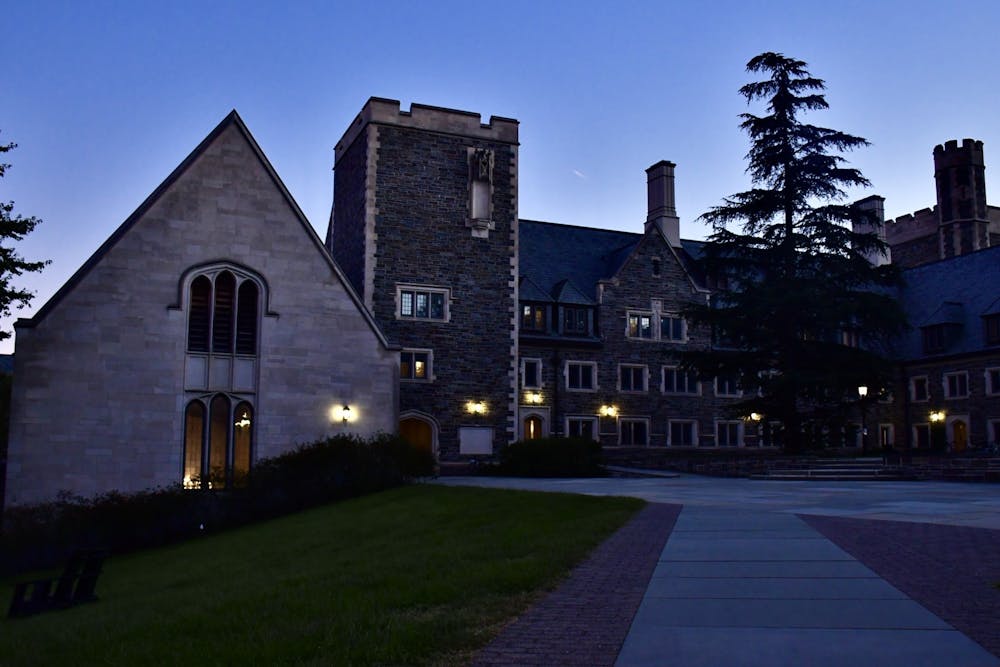Editor’s Note: This piece includes references to suicide that some readers may find distressing.
Last month had no shortage of distressing news, but one tragedy hit especially close to home: Rachael Shaw-Rosenbaum, a first-year at Yale, died by suicide.
Rachael’s passing and the high levels of stress on our own campus have sparked conversations about mental health and burnout. Many of us now acknowledge how overwhelmed we are by having to meet the academic demands of a normal semester while having few opportunities for social interaction. I propose solutions such as giving more breaks, adjusting academic expectations, and putting less pressure on ourselves so we can acknowledge that this semester is not normal.
I don’t think we’ve talked enough about what a normal semester is like.
In an email to the Daily Princetonian, Director of Counseling and Psychological Services Dr. Calvin Chin shared results from the 2020 National College Health Assessment: 30 percent of Princeton students reported feeling hopeless at least “some of the time” in the past month, 47 percent reported feeling restless or fidgety, 23.2 reported feeling “so sad that nothing can cheer you up,” and 14.4 percent reported feeling worthless.

This was before the pandemic. There has always been a mental health problem at Princeton and our peer institutions, and it shouldn’t take highly-visible levels of burnout or worse, a tragedy, to address it. If we take a few lessons from the pandemic, we can improve students’ mental health both now and after Princeton returns to normal.
The University can make it easier to take a leave of absence, a choice that 713 students made this academic year. A leave can provide a needed break from academics, an opportunity to reflect on long-term plans, and time to gain work experience and engage civically — activities that are all important to well-being. However, the current leave policy, which generally requires students to withdraw for two semesters, makes taking a leave difficult, if not infeasible, for most students. The rationale behind the one-year leave policy is that the structure of Princeton’s curriculum and independent work would make it difficult to complete requirements one semester off-cycle. However, the University can, and should, leverage innovations from the past year to overcome these obstacles: remote learning, the summer term, and approval of outside courses can help students make up missed prerequisites and continue their studies after returning.

The University can increase access to counseling appointments. This starts with increasing the size of the Counseling and Psychological Services (CPS) staff. With about 2,500 students utilizing CPS in a year according to a recent email I received from Dr. Calvin Chin, it’s no wonder that our counselors are overbooked. A larger counseling staff should also be a more diverse one: Students I’ve spoken with cited finding a counselor with a shared background as a key factor in deciding whether to use CPS, and the need for staff diversity will only grow as the student body changes. Off campus, Aetna and the Student Health Plan (SHP) should acknowledge the important role that telehealth will continue to play for students in accessing long-term care after COVID-19 and keep in-network appointments free.
Most importantly, we can change our campus culture. The Harvard Crimson Editorial Board aptly attributes stress on its campus to “a vicious cycle of sleep-deprived overachievement ... along with the absurd expectation of constant productivity.” The reality on our campus isn’t very different. We need to examine institutions that perpetuate stress: bicker, which we seem to reckon with every year but not reform; exclusive campus organizations that receive higher levels of interest from students and engagement from their members than non-competitive ones; the obsession over internship and job recruiting and the fewer and less-visible resources for students pursuing non-corporate post-graduation plans.
For many of us, the present moment feels — for lack of a better word — awful. We are rightfully grieving the loss of in-person classes, extracurriculars, and social life and processing multiple tragedies, all while trying to meet Princeton’s rigorous academic demands. Our mental health suffers, but going back to “normal” won’t magically fix it. We have to take steps that go beyond this semester: making it easier to take leaves, making counseling appointments more available, and changing our campus culture. These steps will be hard — they will take years if successful — but they are what we must do for our community’s well-being.
Allen Liu is a junior from Chattanooga, Tenn. He can be reached at afliu@princeton.edu.









